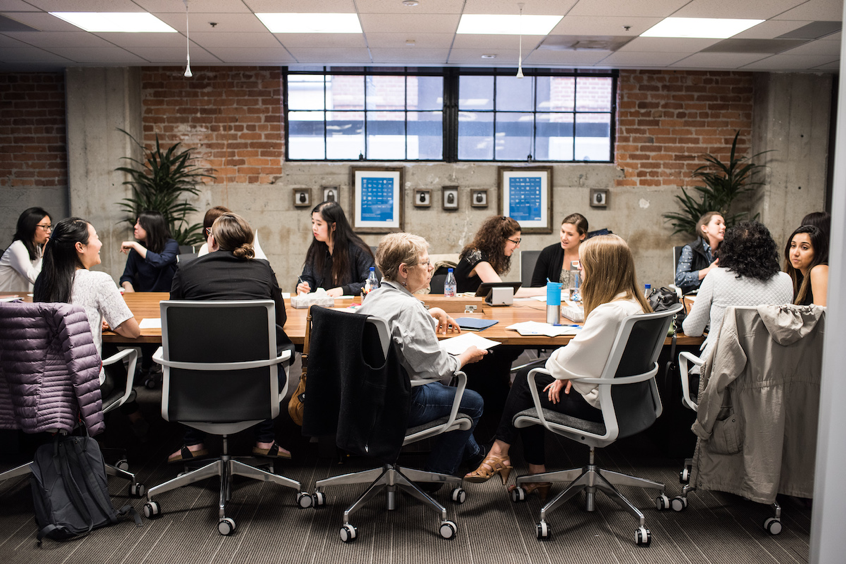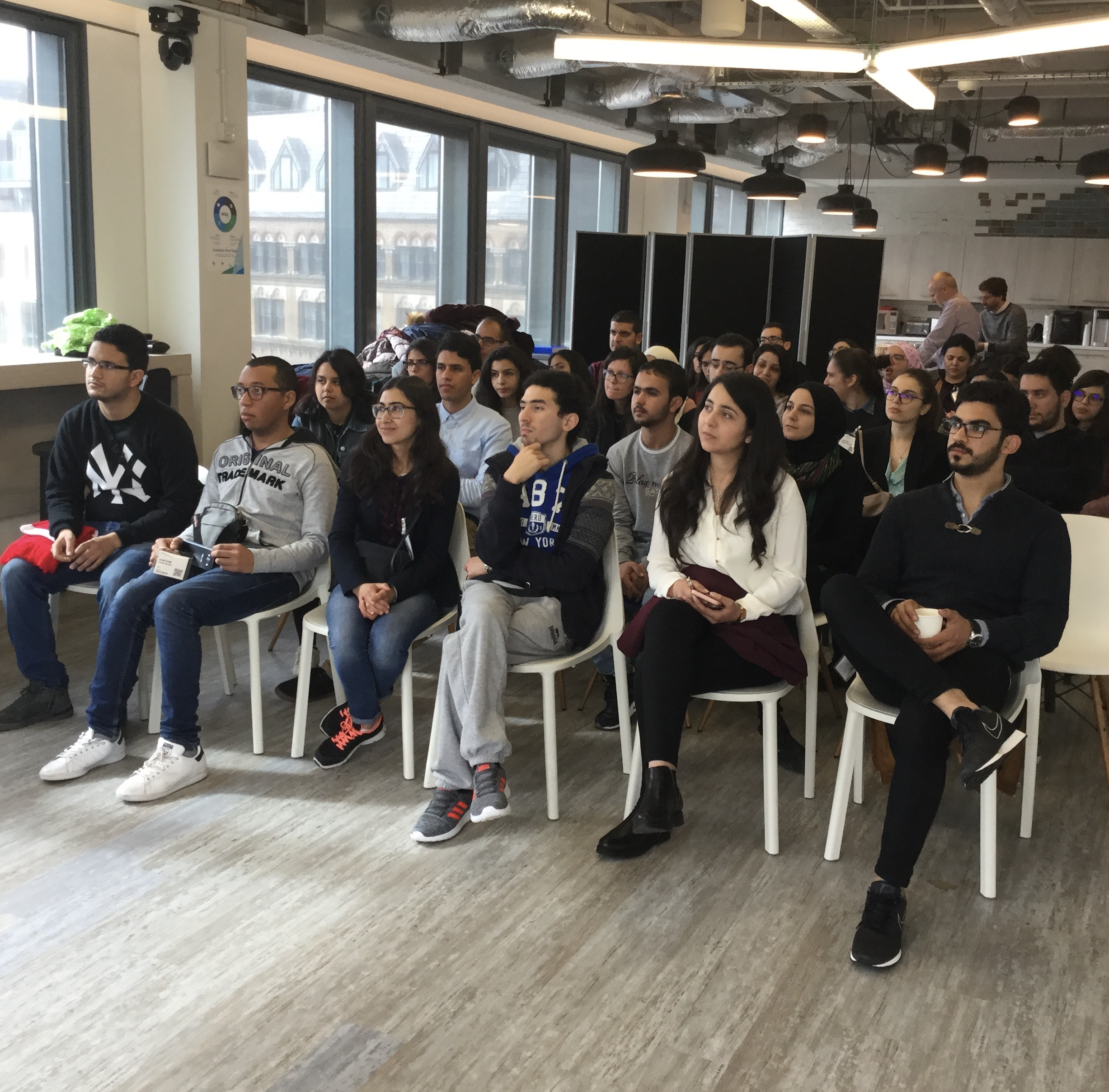Opening Up Pathways into Tech
Last spring, Okta opened its doors to local students and jobseekers for our inaugural Tech Week. Our global teams – from San Jose to Sydney – hosted career workshops and mentoring sessions for more than 200 visitors from tech education and workforce development nonprofits in our local communities.
We learned a few things from this effort:
-
Opening our doors matters. Nearly 30% of the community members we hosted last year had never spent 1:1 time with a tech professional before the event. We all have a role to play in exposing new communities to career paths in tech.
-
Connection changes perceptions. Our teams were blown away by the talent that walked through the door. After their experiences last year, 46% of Okta volunteers said these events had an impact on how they would approach hiring and access new sources of qualified candidates.
-
Employees are saying it’s not enough. Our employees and managers told us they want to do more than just open up the doors once a year. And, in the year since Tech Week, seven different Okta teams actually created new internship or fellowship positions with Okta for Good nonprofit partners – from youth tech programs like Year Up and GenesysWorks to veterans’ programs like Shift. This was not a corporate commitment or top-down mandate. It was simply an organic outgrowth of the connections that were made from time spent with hard-to-reach talent in our communities.

Energized by this momentum, our focus now is on keeping these doors open and creating continuous pathways from our communities into meaningful work. As we kick off this year’s event – Tech Pathways Month – we’re asking, How can we do more?
Doing More Matters. And It Starts With Collaboration. The tech industry is currently falling short in terms of diversity and inclusion. It shouldn’t be a difficult problem to solve, but headlines continue to suggest that it is, and most specifically in the tech industry. There are countless studies that show the difficulty that people from diverse and non-traditional backgrounds face in terms of early and later education, development, and opportunity. According to research done by the Kapor Institute, less that 1% of tech leadership roles are held by black professionals and less than 2% are held by Latinx professionals. The bleak reality is that everyone wants to do more, but overcoming this ongoing challenge isn’t happening as quickly as we’d like.
In an industry filled with innovators and rule breakers, people are quick to question what one hire, one effort, one hour of time can really accomplish. Herein lies the problem – people want to do more, but dismiss the small steps we can take as lacking impact. But, what happens when everyone takes one small step, and then two? The dominoes start to fall and what once seemed difficult suddenly becomes manageable and grows. Making this happen requires intention.
Collaboration between recruiting and social impact, or here at Okta, the Okta for Good team, is a great place to start taking these steps. A strong partnership between these two groups takes all the legwork out of the process for your employees and makes it easier for them to do what is most impactful, like investing their time, networking productively with new communities, and ultimately bringing on high-demand, hard to reach talent. It fosters the necessary intention for the programs which creates opportunities that feel easier and more organic for your teams. This breeds buy-in and most importantly, ongoing involvement.
Put the Partnership to Work. Most companies know that greater alignment between recruiting and social impact is a smart way to drive real outcomes, but many find it hard to do. Here’s how we have made it work and have started to build toward impact together.
-
Get aligned, and be intentional. First, ask the question of how you can support each other’s goals. Especially at a fast-growing companies like Okta, take time to understand how you can solve critical hiring needs and benefit communities at the same time. Make a commitment that this partnership can help to drive the overall success of your organization and treat it as importantly as every other initiative you’re working on.
-
Put it to the test. Start very simply by opening your doors. Leverage an event like Tech Month (or Week! or Day!) to road test a partnership with an initial focus on exposure. Social impact teams can connect to the right nonprofit organizations, translate community needs and drive volunteerism. Recruiting can capture excitement and interest and turn it into action that delivers real impact for the business.
-
Crawl, walk, run. Focus on incremental wins while building systematically for the longer term.For our team, these one-time exposure events have grown organically into internship commitments and later, we hope, into more full-time hires from trusted community partners and beyond. We have found success in leveraging small wins and elevating early champions within the organization that are leading the way (like managers who hire interns from nonprofit partner organizations). The hard part, which we are still learning, is knowing when to pause to celebrate and when to push your teams to do more.
Evolving the Conversation Inside Okta We’re excited to see what we can accomplish together this year during Okta’s Tech Pathways Month, which kicked off last week. In addition to more volunteer events and hosted career visits with nonprofit partners, we’re layering in education sessions for our employees on innovative talent practices, interview training and creating internship positions with community partners. Stay tuned for more from our team.

We look forward to continuing this important conversation at the upcoming Workday Opportunity Onramps Conference, April 24th in San Francisco. We encourage anyone working at the intersection of HR, social impact and workforce development to consider joining us.